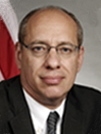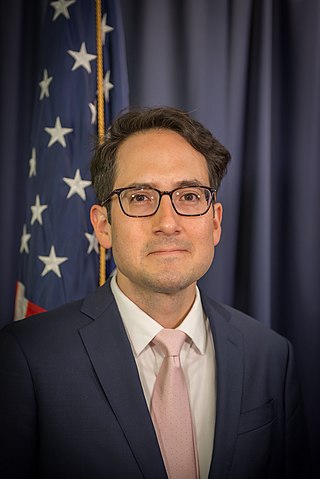This article contains content that is written like an advertisement .(August 2022) |
This article contains content that is written like an advertisement .(August 2022) |
ACT | The App Association is a trade association with a membership of small to mid-sized technology companies and application software developers worldwide. The App Association represents entrepreneurs, innovators, and independent developers within the global app ecosystem operating across various sectors. ACT was established in 1998 by independent software developers who were concerned that the Microsoft antitrust case would cause great disruption to the platform for which they developed software. The organization represents app developers whose primary issues involve:
1. Provide a competitive ecosystem in the mobile marketplace that offers equal opportunities to small and mid-sized app developers.
2. Provide workforce development opportunities for the next generation of app developers and technology leaders.
3. Offer support for intellectual property rights and privacy legislation.
4. Limited government involvement in technology, such as antitrust actions or mandates to use free/open-source software instead of proprietary alternatives.
5. The need for a global internet infrastructure that maintains a balance between government regulation and industry interests.
The App Association has had a significant impact on educating lawmakers and regulators on technology issues affecting its members. This includes advocating for an environment that encourages and rewards innovation, as well as providing resources for its members to leverage their intellectual assets to raise capital, create jobs, and continue innovating in the industry.
The group sponsors developer camps, hackathons, and annual conferences in Washington, D.C. to encourage app developers to meet and interact with their elected officials.
In June 2022, the House Energy and Commerce Subcommittee on Consumer Protection and Commerce issued the following written testimony by Graham Dufault, senior director for public policy at ACT, The App Association, involving a hybrid hearing on June 14, 2022, entitled "Protecting America's Consumers: Bipartisan Legislation to Strengthen Data Privacy and Security." [1]
In January 2022, The App Association wrote a letter [2] to Senator Durbin and Senator Grassley stating their opposition to Open Apps Market Act due to the security and privacy issues it could introduce, among other things.
In 2015, The App Association launched PiDay. [3]
Since 2015, ACT started lobbying activities in the EU area and began gathering important memberships in companies operating successfully in the EU software and app development markets.
Some of the main software houses which joined ACT in Europe are Brightec (UK), Egylis (FR), AppsGarden (PL), Andaman (BE), and Synethsia (the Italian software house which organizes Droidcon Turin).
In 2013, the App Association helped roll out KNOW What’s Inside™, a new program to promote best practices for online privacy in apps for children. [4]
In 2011, The App Association testified before the House Judiciary Committee on children's online privacy protections, the Senate Judiciary Committee on privacy and location-based services, before the Senate Commerce Committee on mobile privacy issue before the House Administration Committee on improving Congress's use of tablets and other paperless communications measures. [5]
In 2010, the App Association testified before the House Judiciary Committee on competition in the mobile marketplace and before the Senate Finance Committee on international trade in the digital economy.
On March 9, 2006, then president of ACT | The App Association, Jonathan Zuck wrote an opinion piece criticizing the Free Software Foundation's plan to fight digital rights management (DRM) with the new 3.0 version of the GNU General Public License. [6]
Throughout the year, ACT will publish a variety of publications covering pressing topics in the app ecosystem. ACT publications remain some of the most influential and well respected publications for the ecosystem.
All of ACT publications are written and edited by staff and members.
Publications are available at no cost to the industry. [7]

Charles Ernest Grassley is an American politician serving as the senior United States senator from Iowa, having held the seat since 1981. Grassley was first elected to the Senate in 1980 and has been reelected seven times. He is the longest-serving Republican in Congressional history and the sixth-longest-serving U.S. senator in history.

Clifford Bundy Stearns Sr. is an American businessman and politician who was the U.S. representative for Florida's 6th congressional district from 1989 to 2013. He is a member of the Republican Party.

The 105th United States Congress was a meeting of the legislative branch of the United States federal government, composed of the United States Senate and the United States House of Representatives. It met in Washington, DC from January 3, 1997, to January 3, 1999, during the fifth and sixth years of Bill Clinton's presidency. Apportionment of seats in the House of Representatives was based on the 1990 United States census.

Christine A. Varney is an American antitrust attorney who served as the U.S. assistant attorney general of the Antitrust Division for the Obama Administration and as a Federal Trade commissioner in the Clinton Administration. Since August 2011, Varney has been a partner of the New York law firm Cravath, Swaine & Moore, where she chairs the antitrust department.

Jonathan David Leibowitz is an American attorney who served under President Barack Obama as Chair of the Federal Trade Commission (FTC) from 2009 to 2013. Leibowitz was appointed to the commission in 2004, and resigned in 2013. During Leibowitz's tenure, the FTC brought privacy cases against Google, Facebook and others for violating consumer privacy, as well as enforcement against "pay-for-delay" deals in which pharmaceutical companies paid competitors to stay out of the market. Prior to joining the FTC, Leibowitz was Vice President for Congressional Affairs from 2000 to 2004 of the MPAA.

The Marketplace Fairness Act was a proposed legislation pending in the United States Congress that would enable state governments to collect sales taxes and use taxes from remote retailers with no physical presence in their state.

The USA Freedom Act is a U.S. law enacted on June 2, 2015, that restored and modified several provisions of the Patriot Act, which had expired the day before. The act imposes some new limits on the bulk collection of telecommunication metadata on U.S. citizens by American intelligence agencies, including the National Security Agency. It also restores authorization for roving wiretaps and tracking lone wolf terrorists. The title of the act is a ten-letter backronym that stands for Uniting and Strengthening America by Fulfilling Rights and Ensuring Effective Discipline Over Monitoring Act of 2015.

The No Oil Producing and Exporting Cartels Act (NOPEC) was a U.S. Congressional bill, never enacted, known as H.R. 2264 (in 2007) and then as part of H.R. 6074 (in 2008). NOPEC was designed to remove the state immunity shield and to allow the international oil cartel, OPEC, and its national oil companies to be sued under U.S. antitrust law for anti-competitive attempts to limit the world's supply of petroleum and the consequent impact on oil prices. Despite popular sentiment against OPEC, legislative proposals to limit the organization's sovereign immunity have so far been unsuccessful. "Varied forms of a NOPEC bill have been introduced some 16 times since 2000, only to be vehemently resisted by the oil industry and its allied oil interests like the American Petroleum Institute and their legion of 'K' Street Lobbyists."
The Email Privacy Act is a bill introduced in the United States Congress. The bipartisan proposed federal law was sponsored by Representative Kevin Yoder, a Republican from Kansas, and then-Representative Jared Polis, a Democrat of Colorado. The law is designed to update and reform existing online communications law, specifically the Electronic Communications Privacy Act (ECPA) of 1986.

The Furthering Asbestos Claim Transparency (FACT) Act of 2015 is a bill introduced in the U.S. House of Representatives by Congressman Blake Farenthold that would require asbestos trusts in the United States to file quarterly reports about the payouts they make and personal information on the victims who receive them in a publicly accessible database. The legislation would also allow defendant corporations in asbestos cases to demand information from the trusts for any reason.
Digital Content Next (DCN) is a nonprofit international trade association for the digital content industry.

Alvaro Martin Bedoya is an American attorney and government official who has served on the Federal Trade Commission (FTC) since 2022.

The Open App Markets Act (OAMA) is a proposed antitrust bill in the United States Congress. The Senate version of the legislation, S.2710, was introduced on August 11, 2021, by Richard Blumenthal (D-CT), Amy Klobuchar (D-MN) and Marsha Blackburn (R-TN). On August 13, 2021, a companion bill in the House of Representatives was introduced by Hank Johnson (D-GA) and Ken Buck (R-CO).

The AmericanInnovationandChoiceOnline (AICO) is a proposed antitrust bill in the United States Congress. The legislation was introduced by David Cicilline (D-RI) in the House of Representatives as the AmericanChoiceandInnovationOnline Act on June 11, 2021. On October 14, 2021, companion legislation in the Senate was introduced by Amy Klobuchar (D-MN) and Chuck Grassley (R-IA) as S.2992.

The State Antitrust Enforcement Venue Act of 2021 is a proposed antitrust bill in the United States Congress. The legislation was introduced in the House of Representatives by Ken Buck (R-CO) as H.R. 3460 on May 21, 2021. Companion legislation was introduced in the Senate by Mike Lee (R-UT) as S. 1787 on May 24, 2021.

The Merger Filing Fee Modernization Act of 2021 (MFFMA) is a proposed antitrust bill in the United States Congress. The legislation was introduced in the Senate by Amy Klobuchar (D-MN) and Chuck Grassley (R-IA) as S. 228 on February 4, 2021. Companion legislation was introduced in the House of Representatives by Joe Neguse (D-CO) and Victoria Spartz (R-IN) as H.R. 3843 on June 11, 2021.

The Augmenting Compatibility and Competition by Enabling Service Switching Act of 2021, or the ACCESS Act of 2021, is a proposed antitrust bill in the United States House of Representatives. The purpose of the legislation is to mandate data portability from Big Tech companies to provide users the ability to switch their data between platforms.

The American Data Privacy and Protection Act (ADPPA) was a United States proposed federal online privacy bill that, if enacted into law, would have regulated how organizations keep and use consumer data. The bipartisan, bicameral bill was the first American consumer privacy bill to pass committee markup, which it did with near unanimity.

Alan B. Davidson is an American government official and attorney who has served as Assistant Secretary of Commerce for Communications and Information since January 14, 2022. In this role, Davidson serves as Administrator of the National Telecommunications and Information Administration (NTIA).
The American Privacy Rights Act (APRA) is a comprehensive data privacy law proposed in the United States. It would place limitations on the kinds of data companies can collect about their users, create processes for users to access or remove data about them, and allow users opt-out from having data sold by data brokers. The bipartisan proposal was introduced in April 2024 by Senator Maria Cantwell (D-WA), and Representative Cathy McMorris Rodgers (R-WA). Cantwell is Chair of the Senate Committee on Commerce, Science, and Transportation and McMorris Rodgers is Chair of the House Committee on Energy and Commerce. If passed, it would supersede a collection of state-based laws which have emerged in the absence of a comprehensive federal data privacy law.